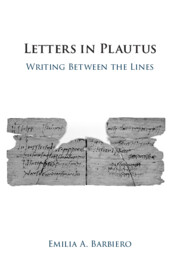Postscripts
Published online by Cambridge University Press: 01 December 2022
Summary
Six Plautine prologues1 and six Terentian prologues are our earliest unequivocal proof of original titulature in ancient drama.2 The twelve titles these provide are also the only securely author-sanctioned titles we have for the entire republican period until Cicero.3 While any authorial title is revelatory, the titles of Roman comedies are especially so; we have just seen that the title of a translation can convey information about its relationship to the source text. Juxtaposed with “Thesauros”, “Trinummus” gave us a key to understanding not only how the playwright conceptualizes his own play but also how he has reconceptualized a Greek play.4 Plautus’ titular changes, then, are meaningful and we should be paying more attention – not least because the poet does not always give his translation a new name: of ten comedies in the corpus whose originals we know for sure,5 only six have new titles.6 What is the difference between plays with changed names and those whose Greek names have just been translated into Latin? Are the former more Plautine than the latter? Is Mercator closer to Emporos than Stichus is to Adelphoi?
Information
- Type
- Chapter
- Information
- Letters in PlautusWriting Between the Lines, pp. 197 - 206Publisher: Cambridge University PressPrint publication year: 2022
